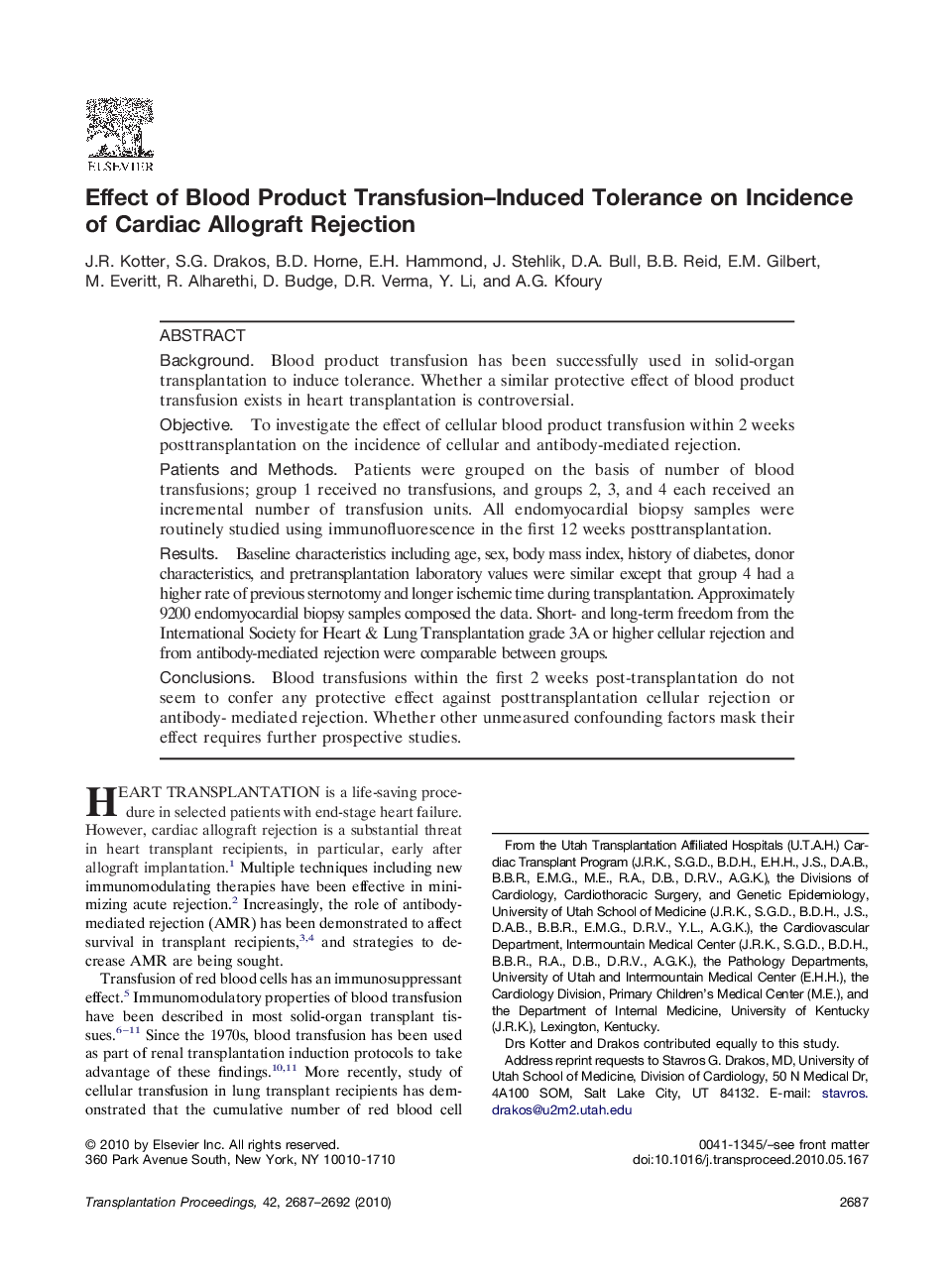| Article ID | Journal | Published Year | Pages | File Type |
|---|---|---|---|---|
| 4259463 | Transplantation Proceedings | 2010 | 6 Pages |
BackgroundBlood product transfusion has been successfully used in solid-organ transplantation to induce tolerance. Whether a similar protective effect of blood product transfusion exists in heart transplantation is controversial.ObjectiveTo investigate the effect of cellular blood product transfusion within 2 weeks posttransplantation on the incidence of cellular and antibody-mediated rejection.Patients and MethodsPatients were grouped on the basis of number of blood transfusions; group 1 received no transfusions, and groups 2, 3, and 4 each received an incremental number of transfusion units. All endomyocardial biopsy samples were routinely studied using immunofluorescence in the first 12 weeks posttransplantation.ResultsBaseline characteristics including age, sex, body mass index, history of diabetes, donor characteristics, and pretransplantation laboratory values were similar except that group 4 had a higher rate of previous sternotomy and longer ischemic time during transplantation. Approximately 9200 endomyocardial biopsy samples composed the data. Short- and long-term freedom from the International Society for Heart & Lung Transplantation grade 3A or higher cellular rejection and from antibody-mediated rejection were comparable between groups.ConclusionsBlood transfusions within the first 2 weeks post-transplantation do not seem to confer any protective effect against posttransplantation cellular rejection or antibody- mediated rejection. Whether other unmeasured confounding factors mask their effect requires further prospective studies.
